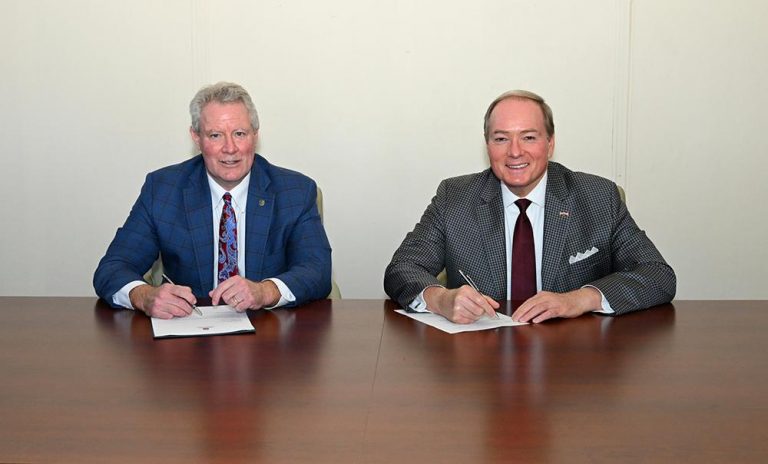
Jamie Wagner. Photo courtesy UM School of Pharmacy
University of Mississippi pharmacy professor shares advice on using medications wisely for better health
Antibiotics are generally regarded as wonder drugs because they help combat dangerous infections and improve quality of life for millions of people. However, they are not cure-alls and must be used wisely to protect their effectiveness, a University of Mississippi pharmacy professor advises.
“Because of antibiotics, people are less likely to die from simple wounds that become infected,” said Jamie Wagner, a clinical associate professor of pharmacy practice in the university’s School of Pharmacy. “Childbirth is much safer, advances such as transplants and cancer treatments are possible, and fewer people die from communicable diseases around the world.”
But overuse and misuse of antibiotics has caused their effectiveness to wane and led to the rise of antibiotic-resistant strains of “superbugs” that can spread rapidly and cause severe illness. The harms of antibiotic use can outweigh the benefits in some circumstances, and harms come in many forms to you, your family, your community and even the world, Wagner advised.
A study published in the Lancet blames misuse of antibiotics for growing antibiotic resistance that could kill 39 million people in the next 25 years.
Routine agricultural use of antibiotics in livestock contributes to the problem, and some scientists believe that climate change and air pollution also speed the process of drug resistance, the Ole Miss professor said.
The good news is that everyone can help maintain the effectiveness of important antibiotic drugs and slow the process of drug resistance, Wagner said.
Some steps everyone can take to protect their health and combat antibiotic resistance include:
- Don’t ask your doctor or dentist to prescribe antibiotics if they don’t advise them. Antibiotics do not work against viral infections, such as common colds, most respiratory infections and even the flu.
- Ask about potential side effects of any antibiotic prescription.
- Take all the prescribed medications. Do not stop taking the medicine because you feel better.
- Don’t share your antibiotics in family or friends.
- Don’t take a dose of an antibiotic “just in case” when you think you may have been exposed to something.
- Follow all the dosing instructions, including the timing of taking pills and whether to take them with food or on an empty stomach.
- Try to select meats and dairy products that are raised without routine antibiotics. Many products are labeled as antibiotic-free.
“All of us must do our part to use antibiotics responsibly to protect ourselves, our families, our neighbors in Mississippi and the rest of the world, while also ensuring their availability for generations to come.” Wagner said.




